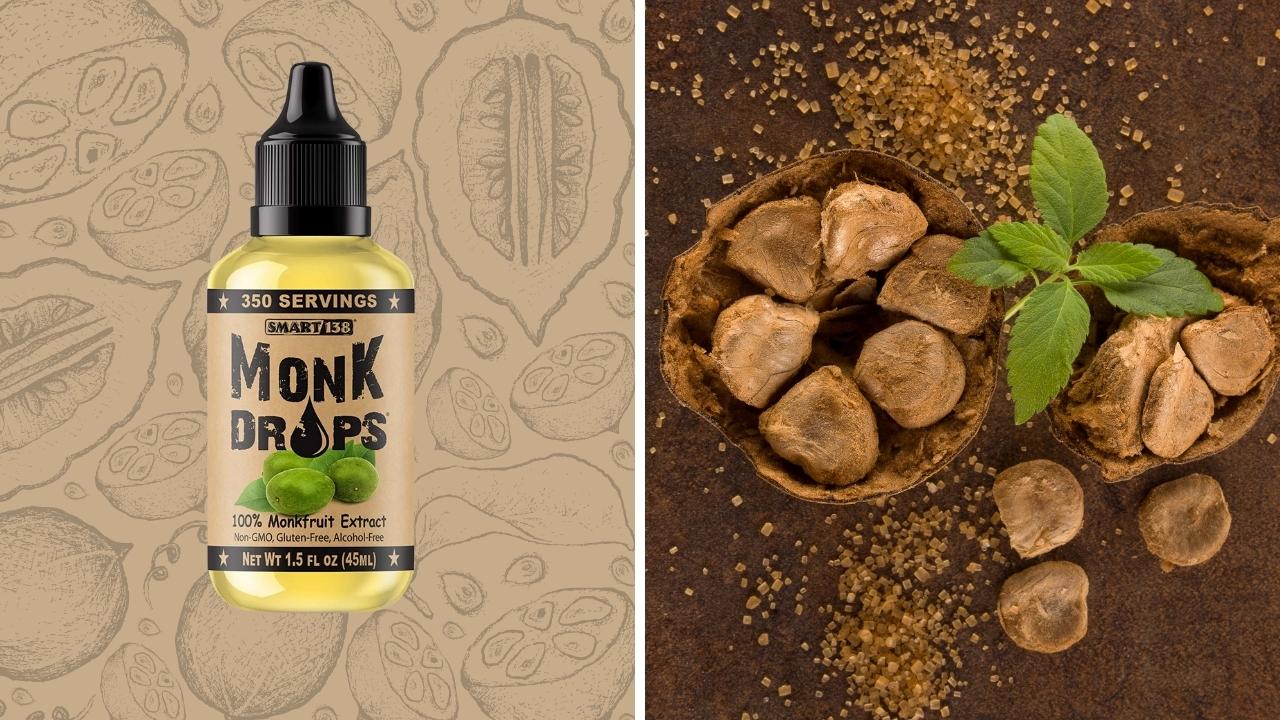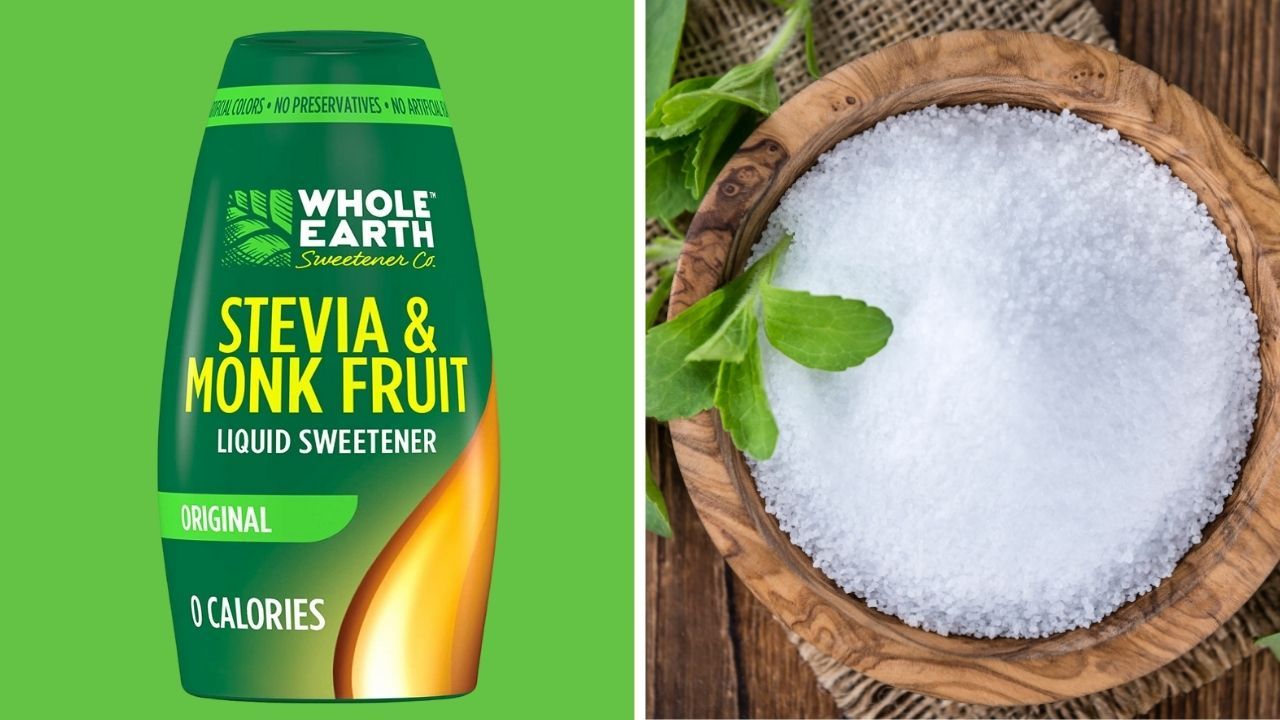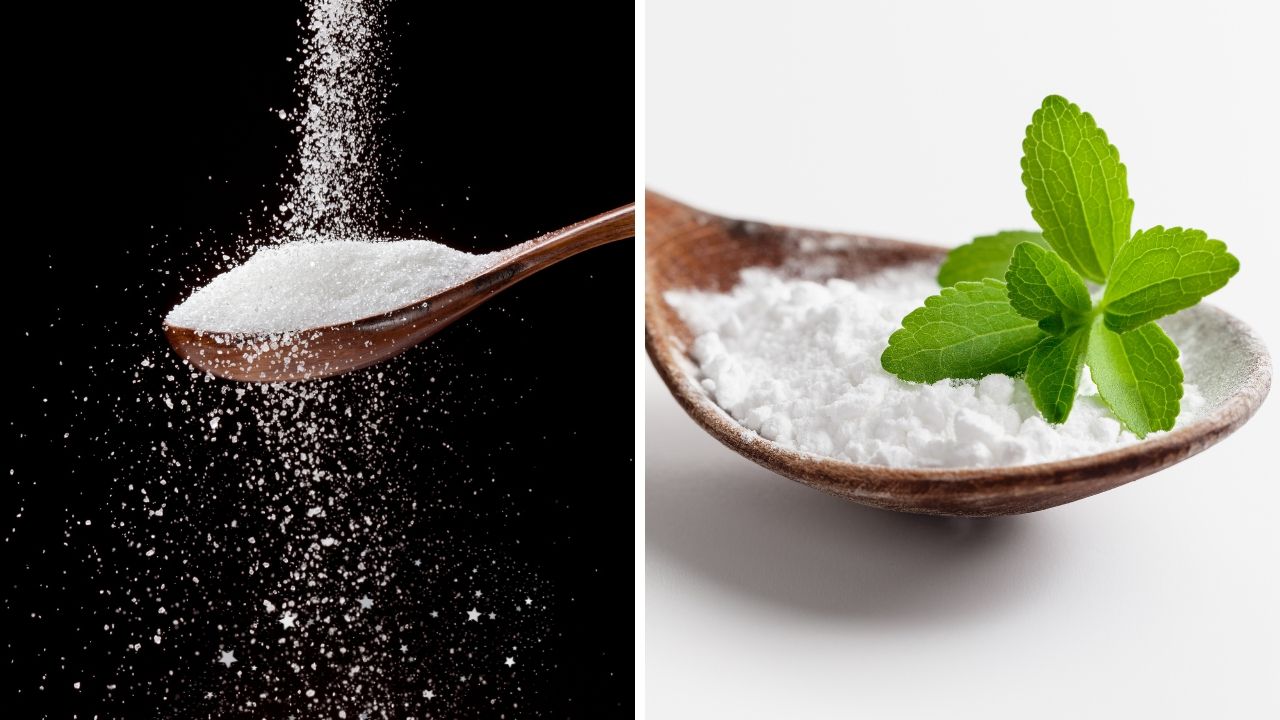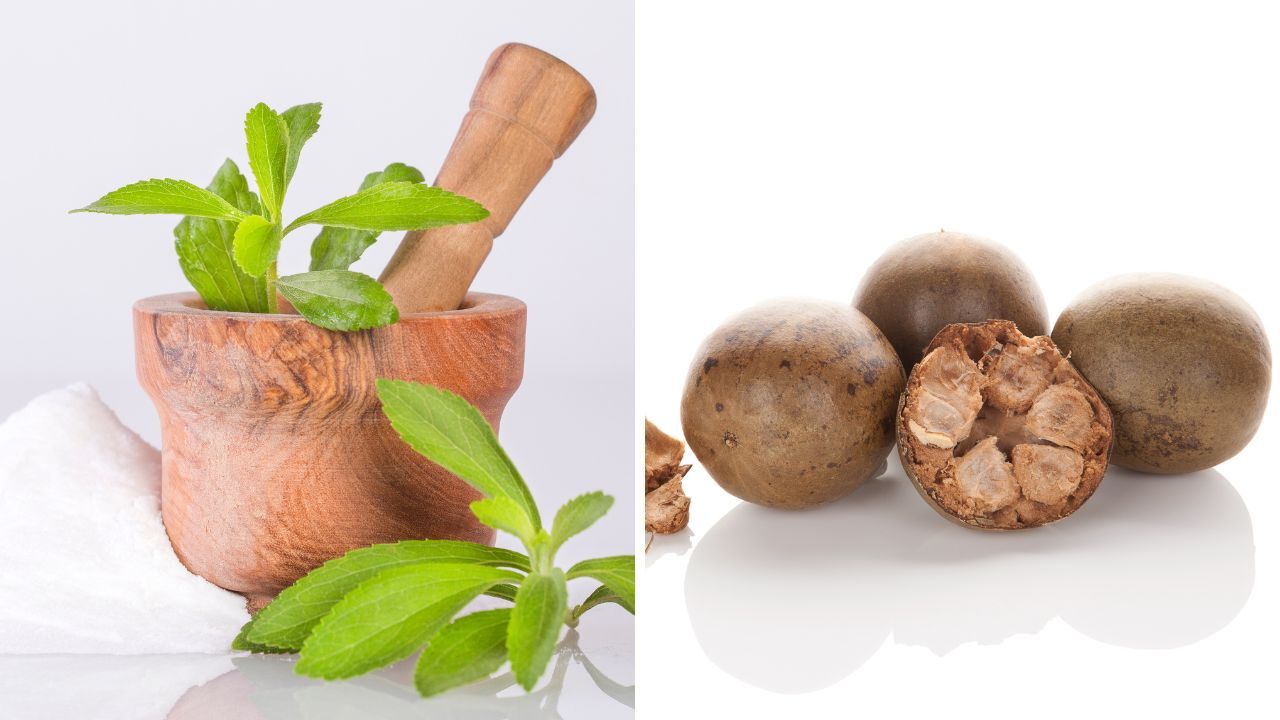
Is Monk Fruit Better Than Stevia | Sugar-Free Showdown
Stevia vs Monk Fruit: Learn which one of these natural sweeteners wins the battle.
Are you caught in the middle of the great debate between monk fruit and stevia as sugar substitutes?
Don't worry, you're not alone.
We all know that cutting back on sugar is crucial for our health, but with so many alternatives out there, it's like choosing your favorite ice cream flavor – nearly impossible!
In this post, we'll dive into the world of natural sweeteners, focusing on two popular contenders: monk fruit and stevia.
So, grab a cup of your favorite sugar-free beverage, and let's get started!
- Monk fruit and stevia are natural, low-glycemic, zero-calorie sweeteners suitable for diabetics.
- Stevia may have a bitter aftertaste, while monk fruit is more pleasant but less accessible.
- Consider taste, health, budget, and availability when choosing between them.
- There's no clear winner; try both sweeteners to find your personal preference.
Monk Fruit: The Mysterious Mogroside Master
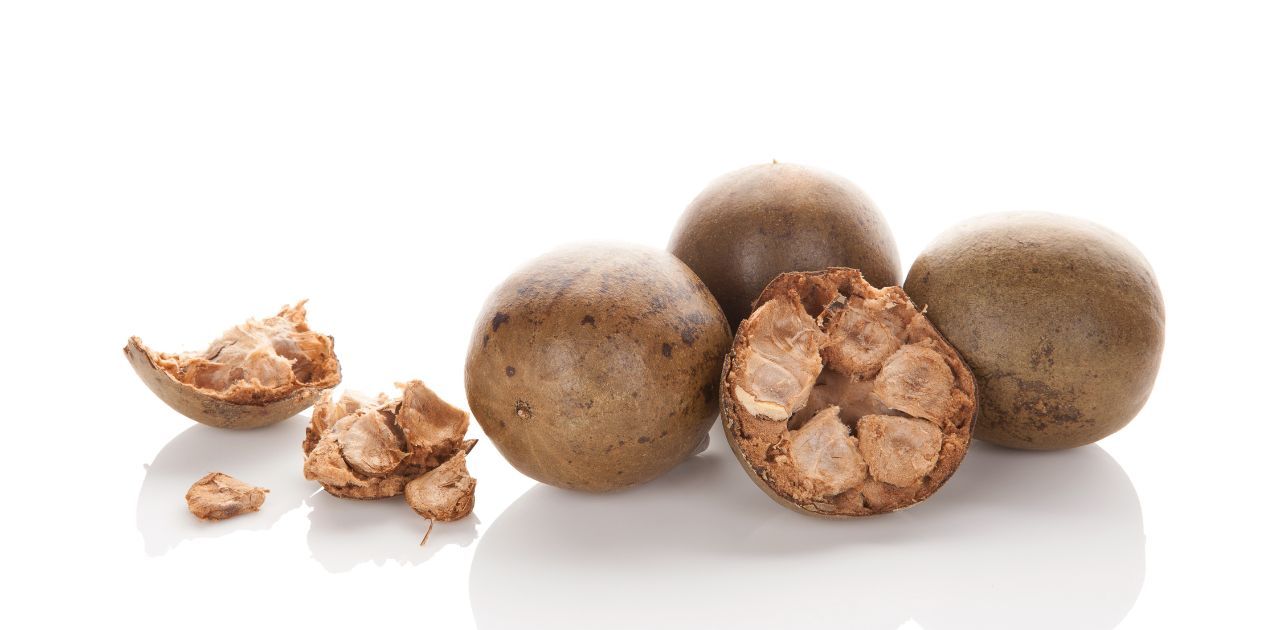
A Brief History of Monk Fruit (Luo Han Guo)
Monk fruit, also known as Luo Han Guo, hails from the land of pandas and kung fu – China! Used for centuries in traditional Chinese medicine, this little green gourd packs a sweet punch without the calories.
Nutritional Profile: The Sweet Deets
Now, let's talk about what makes monk fruit so sweet. The secret lies in its mogrosides, which are responsible for the fruit's sweetness.
- These compounds are like nature's little sweet-talking charmers, making everything taste delightful without adding calories or affecting blood sugar levels.
- Fresh monk fruit that has a short shelf life. Historically, dried monk fruit was used in herbal remedies. Nowadays, monk fruit is primarily utilized as a natural sweetener.
As for the calorie content and glycemic index, monk fruit comes in with a big fat zero. That's right – zero calories and no impact on blood sugar. It's like a magical dessert genie granting your sugar-free wishes!
Benefits: The Monk Fruit Marvels
Wondering why you should consider monk fruit as your go-to sweetener? Here are some of its superpowers:
- Antioxidant properties: Monk fruit is like a superhero swooping in to save your cells from damage caused by free radicals.
- Potential anti-inflammatory effects: Some studies suggest that monk fruit may help reduce inflammation, making it a sweet ally in your battle against pesky aches and pains.
- Suitable for diabetics and those watching their blood sugar: With its low glycemic index, monk fruit is like a responsible friend who won't spike your blood sugar levels.
Drawbacks: The Not-So-Sweet Side
Of course, no sweetener is perfect, and monk fruit does have a few drawbacks:
- Limited availability and higher cost: Unfortunately, monk fruit can be harder to find and more expensive than other sweeteners. It's like that trendy, exclusive nightclub that's difficult to get into but totally worth it once you're inside.
- Possible gastrointestinal issues: Some people might experience tummy troubles when using monk fruit, but this varies from person to person. It's like trying out a new dance move – it might not agree with everyone, but don't let that stop you from giving it a whirl!
If you're looking for pure monk fruit extract, it might be more challenging to find a monk fruit sweetener that suits your needs. Most products contain additives to aid as a preservative and enhance flavor.
Stevia: The Sweet Sensation from South America
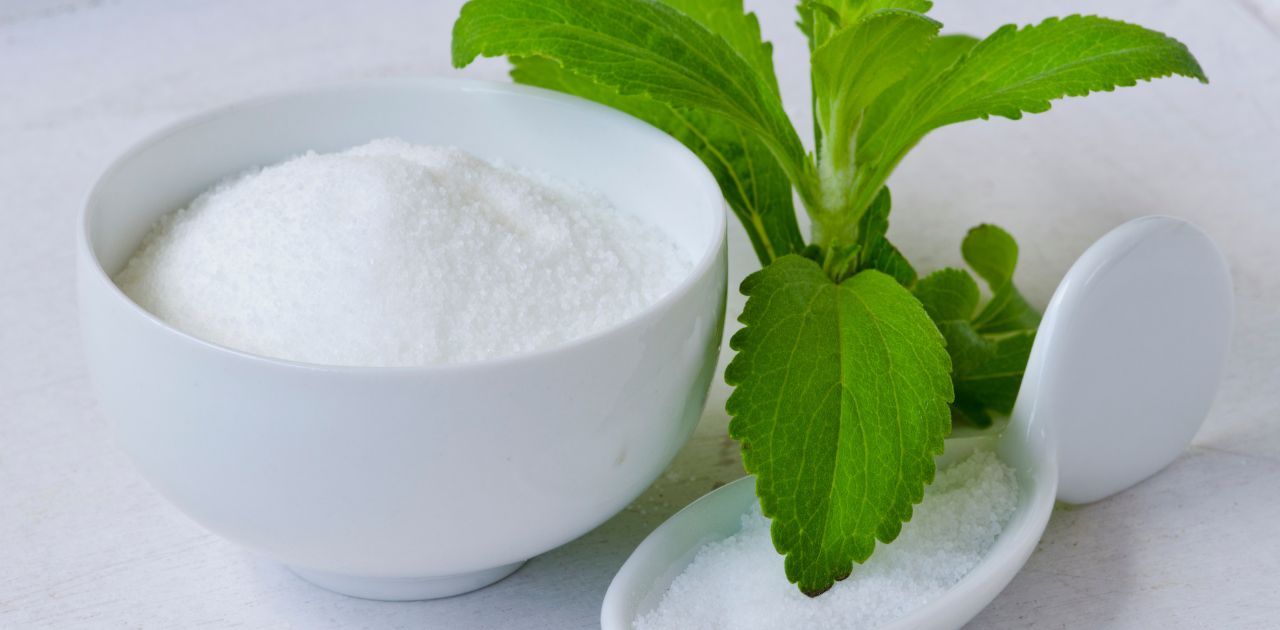
A Brief History of Stevia (Stevia Rebaudiana)
Now, let's turn our attention to the other sweet sensation in this showdown: the Stevia Rebaudiana plant.
Hailing from South America, the stevia plant has been used for centuries by the Guarani people to sweeten their beverages and medicines. It's like the wise grandparent of natural sweeteners – experienced and well-loved!
Nutritional Profile: The Sweet Science of Stevia
What makes stevia so sweet, you ask? The answer lies in its steviol glycosides – the compounds responsible for its sweetness.
- They are a type of glucose that is 200-300 times sweeter than regular table sugar.
- These little molecules are like a team of cheerleaders, boosting the sweetness levels without adding calories or affecting blood sugar.
Speaking of calories and glycemic index, stevia is another zero-calorie, zero-glycemic-index champion! It's like having your cake and eating it too – without any guilt!
Benefits: The Sweet Perks of Stevia
Wondering why you should give stevia a try?
Here are some of its sweet advantages:
- Zero-calorie option for weight management: With no calories, stevia can help you maintain or even lose weight while still enjoying your favorite treats. It's like having a personal trainer who lets you eat dessert!
- Suitable for diabetics and those watching their blood sugar: Like monk fruit, stevia's low glycemic index makes it a great option for those keeping an eye on their blood sugar levels. It's like a responsible babysitter for your blood sugar!
- Widely available and affordable: Unlike its elusive cousin monk fruit, stevia is easy to find and wallet-friendly. It's like that popular, budget-friendly restaurant everyone loves!
Drawbacks: The Bitter Side of Stevia
Of course, stevia isn't without its shortcomings:
- Bitter aftertaste reported by some users: Some people find that stevia leaves a bitter aftertaste. It's like that friend who's great to hang out with but sometimes says something a bit off-putting. Don't let this stop you from giving stevia a chance – you might not even notice the aftertaste!
- Potential negative effects on gut microbiome: Some studies suggest that stevia could have an impact on your gut's friendly bacteria. It's like inviting a guest to a party who might not get along with everyone – proceed with caution and see how your gut feels about it.
- Sugar Alcohols: If you consume stevia products with sugar alcohols, your chances of experiencing digestive issues such as bloating, gas, or diarrhea may be higher.
- Allergic reactions: Certain studies have shown that raw stevia, which contains impure steviol glycosides, could lead to allergic reactions.
Comparing Monk Fruit and Stevia: Sweet Siblings or Distant Cousins?
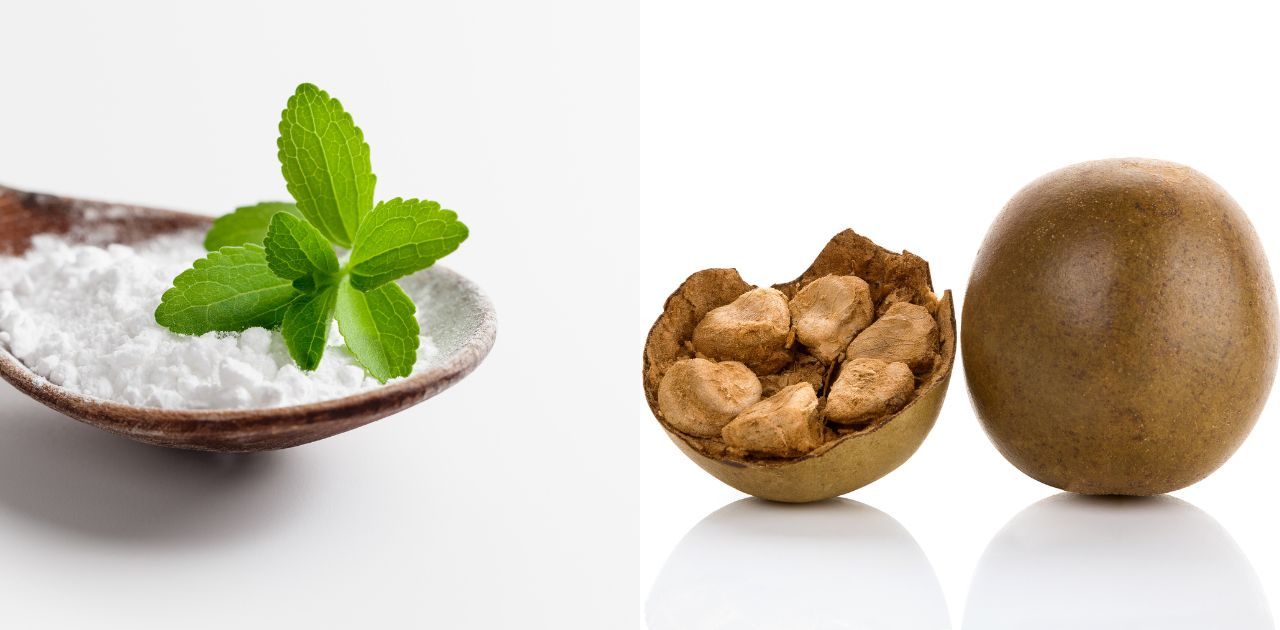
Similarities: The Sweet Bond
Before we help you decide which sweetener to choose, let's take a look at how monk fruit and stevia are similar:
- Natural, plant-based alternatives: Both sweeteners come from Mother Nature herself, making them excellent substitutes to cane sugar or artificial sweeteners.
- Low glycemic index: With their low glycemic indexes, both monk fruit and stevia are suitable for diabetics and those watching their blood sugar. It's like having two responsible designated drivers for your blood sugar levels!
- Versatile use: Both sweeteners can be used in various food and beverage applications, from baking to coffee. They're like the Swiss Army knives of sweeteners – ready for any culinary challenge!
Differences: The Sweet Divide
Now, let's explore the differences between these two sweeteners:
- Taste profiles and aftertaste: While both are sweet, some people find that stevia has a bitter aftertaste, whereas monk fruit is often described as more pleasant. It's like comparing apples and oranges – or, in this case, monk fruit and stevia!
- Availability and cost: Stevia is generally more accessible and affordable than monk fruit. Think of stevia as the popular, budget-friendly option, while monk fruit is the exclusive, high-end alternative.
- Research on potential health benefits or drawbacks: While both sweeteners have their perks, they also come with potential downsides. Monk fruit may cause gastrointestinal issues in some individuals, and stevia could potentially affect the gut microbiome.
How to Choose the Right Sweetener for You: A Sweet Decision
Ultimately, choosing between monk fruit and stevia comes down to personal preference and individual needs. Here are some factors to consider:
- Personal taste preferences: Do you prefer a sweetener without any aftertaste? Then monk fruit might be your winner! Are you okay with a slight bitterness? Give stevia a shot!
- Health considerations and dietary restrictions: If you have specific health concerns or dietary restrictions, consult with a healthcare professional before incorporating a new sweetener into your diet.
- Budget and accessibility: If cost and availability are important factors for you, stevia might be the way to go. If you're willing to splurge a bit for a unique taste, give monk fruit a try!
- Experimentation: Don't be afraid to try both sweeteners in different recipes and applications to see which one works best for you. It's like dating – you need to test the waters before committing!
The Sweet Verdict
In this epic battle of natural sweeteners, there's no clear winner. Both monk fruit sweeteners and stevia sweeteners have their pros and cons, and the choice ultimately depends on your personal preferences and needs.
So, give both of these sweet alternatives a try and let your taste buds decide which one reigns supreme in your kitchen!
Recommended For You...
